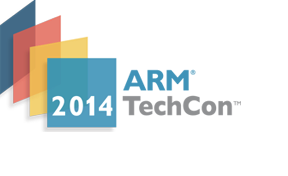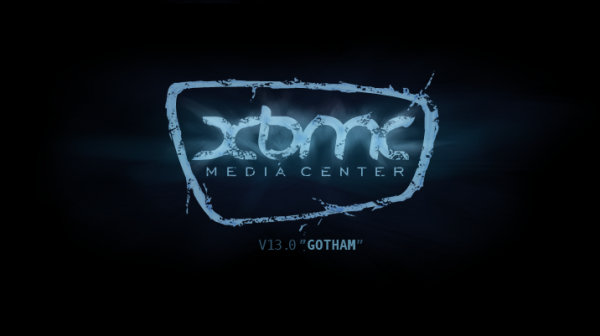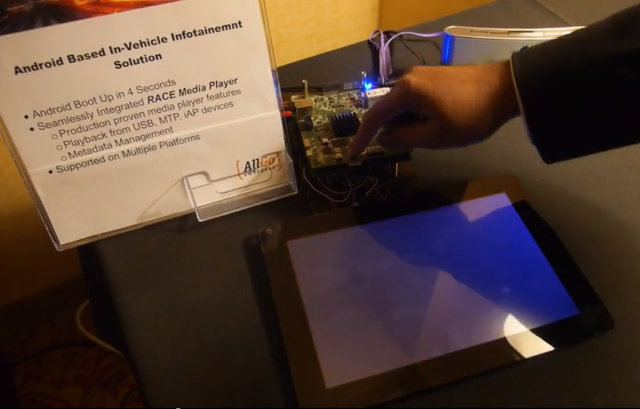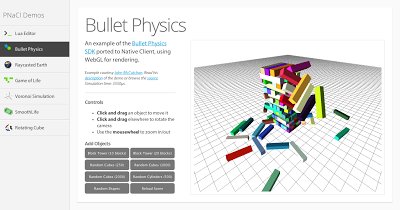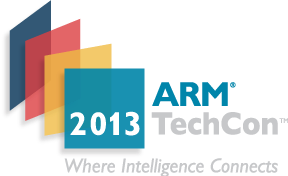ARM Technology Conference (TechCon) 2014 will take place on October 1 – 3, 2014, in Santa Clara, and as every year, there will be a conference with various sessions for suitable engineers and managers, as well as an exposition where companies showcase their latest ARM based products and solutions. The detailed schedule for the conference has just been made available. Last year, there were 90 sessions organized into 15 tracks, but this year, despite received 300 applications, the organizers decided to scale it down a bit, and there will be 75 session in the following 11 tracks: Chip Implementation Debugging Graphics Heterogeneous Compute New Frontiers Power Efficiency Safety and Security Software Development and Optimization Software Optimization for Infrastructure and Cloud System Design Verification There are also some paid workshops that take all day with topics such as “Android (NDK) and ARM overview”, “ARM and the Internet of Things”, or “ARM […]
XBMC 13 “Gotham” Released
After month of development, alpha releases, beta releases, RC releases, XBMC 13 “Gotham” is finally out. This is the first official release that supports hardware video decoding for ARM and x86 based Android 4.0+ devices. Support is not available for 100% of devices, as for instance, AllWinner A1X/A20 and Amlogic SoCs do not support the standard Android StrageFright or MediaCodec APIs, but most others should. There’s one XBMC Android version for ARM, one for x86. Android hardware video decoding is obviously not the only feature or improvement brought about by XBMC 13. Here are the key ones: Raspberry Pi and Android speed improvements – Overall system performance improvements, but optimizations are said to be particularly noticeable when opening and browsing libraries, loading images and starting videos. Stereoscopic 3D Rendering – SBS, TAB, anaglyph, and interlaced are supported. XBMC cannot yet support 3D blurays and cannot provide hardware acceleration for FullSBS/TAB […]
Embedded Linux Conference 2014 Schedule
The Tenth Embedded Linux Conference (ELC 2014) will take place on April 29 – May 1, 2014 at the San Jose Marriott in San Jose, California. The event will feature 90+ sessions on embedded Linux, Android and IoT with over 450 attendees expected to attend. It will also be co-located with Android Builders Summit and the AllSeen Alliance Hackfest. Even if you can’t attend it’s still interesting to see what will be discussed at the event to get a grasp of on-going developments, learn a few things about different optimization techniques, and so on. So I’ve gone through the sessions’ description, and I’ve designed my own virtual schedule with sessions that could be of interest. April 29 9:00 – 9:30 – Keynote: The Paradox of embedded and Open Source by Tim Bird, Sony Mobile Linux has taken the embedded world by storm. Billions (with a ‘B’) of devices have now shipped […]
AllGo Embedded Systems Android IVI System Boots in 4 Seconds
We’ve already seen several sub-second boot times for embedded Linux systems with platforms such as Beagleboard (TI OMAP 3530) and an AllWinner A10 based device, but I had never seen fast boot optimization for Android before, or I just forgot… Typically Android boots within 20 to 40 seconds on most devices, but AllGo Embedded Systems has optimized Android Jelly Bean boot time for their IVI (In-Vehicle Infotainment) platform running a media player called RACE. Charbax interviewed then at CES 2014, where they demoed the 4 seconds (actually 4.2 seconds) boot on Texas Instruments OMAP5 from reset and power, as you can see in the video below. (The video starts at 2:20 to show the demo directly). Beside Texas Instrument OMAP5, the solution is also available for Freescale i.MX6. 0xlab did some boot time optimizations for Android dropping the boot time from 30 seconds to 15 seconds. AllGo Embedded Systems did […]
Google’s Portable Native Client Builds Architecture Independent Executable for Portability, and Better Performance
Native Client (NaCl) allows to build native C and C++, and runs it in the browser for maximum performance. Applications such as photo editing, audio mixing, 3D gaming and CAD modeling are already using it. The problem is that you have to build the code for different architecture such as ARM, MIPS or x86. To provide a portable binary, Google announced the Portable Native Client (PNaCl, pronounced pinnacle), which “lets developers compile their code once to run on any hardware platform and embed their PNaCl application in any website”. Instead of compiling C and C++ code directly to machine code, PNaCl generates a portable bitcode executable (pexe), which can be hosted on a web server. Chrome then loads this executable, and converts it into an architecture-specific machine executable (native executable – nexe) optimized for the device where the code runs. Bullet physics simulators (Shown below) and Lua interpreters are two […]
Google Announces LG Nexus 5 Smartphone with Android 4.4 KitKat
Google has partnered with LG and Nestle to bring to market the latest Nexus 5 smartphone featuring Android 4.4 “Kitkat”, the latest, and brand new, release of Android. Let’s first have a look at the device, and then we’ll go through the new features and improvement brought by Android 4.4. LG Nexus 5 Nexus 5 has the following technical specifications: SoC – Qualcomm Snapdragon 800 @ 2.26GHz with Adreno 330 GPU @ 450MHz System Memory – 2GB RAM Storage – 16 to 32 GB flash, but no microSD slot Display – 4.95″ touchscreen display with 1920×1080 resolution, Gorilla Glass 3 Connectivity – Dual band 802.11a/b/g/n/ac WiFi (2.4G/5G), Bluetooth 4.0, NFC, and GPS Celullar Networks – 2G/3G/4G LTE. GSM, CDMA, WCDMA, and LTE in North America, and GSM, WCDMA, and LTE for the rest of the world. Camera – 8MP rear camera with Optical Image Stabilization (OIS) and 1.3MP front camera […]
Embedded Linux Conference Europe 2013 Schedule – Build Systems, Security, Device Tree, Debugging & Profiling Techniques, and More
Embedded Linux Conference Europe 2013 will conveniently start right after LinuxCon 2013, last 2 days (October 23-24), and take place at the same location: the Edinburgh International Conference Center, Edinburgh, United Kingdom. The Linux Foundation has published the schedule for the conference, so I’ll make my own virtual schedule with sessions that I find particularly interesting. Thursday – 24th of October 9:30 – 10:10 – Timeline For Embedded Linux by Chris Simmonds, Consultant, 2net Limited Today, Linux is woven into the fabric of our technology. Things such as printers, routers, TVs and phones all have their own “Inner Penguin”. Yet it was never originally intended to be used beyond desktop and server PCs. A lot of things had to happen before Linux could break out of the PC environment and make its way in the world as a jobbing jack-of-all-trades. Since the early beginnings of embedded Linux in the late 1990’s many people have contributed […]
ARM TechCon 2013 Schedule – ARM Servers, Internet of Things, Multicore, Hardware and Software Optimization and More
ARM Technology Conference (TechCon) 2013 will take place on October 29 – 31, 2013, in Santa Clara, and the detailed schedule for the event has just been made available. In the previous years, the conference was divided into Chip Designs day (1 day), and the other 2 days were reserved for Software & System Design, but this year it does not appear to be the case. Whether you’ll be able to attend the event or not, it’s worth having a look at what will be discussed there in order to have a better understanding of what will be the key ARM developments in the near future in terms of hardware and software. There will be around 90 sessions categorized into 15 tracks: Accelerating Hardware Development – This track explores the resources, tools, and techniques that designers can employ to quickly bring hardware to market. Topics include multicore design, ARM IP, […]


